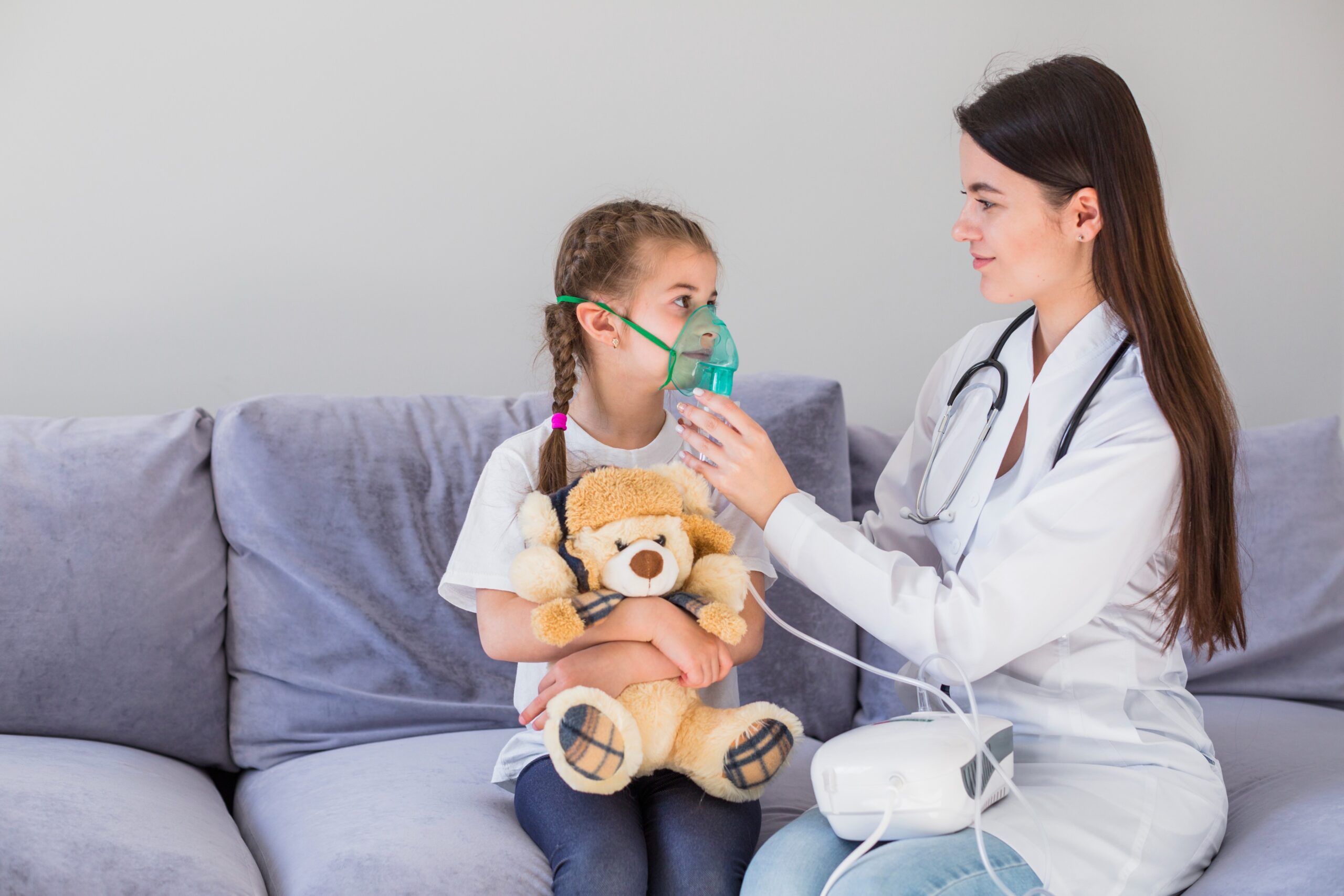Winter knocked on the door, and are you are still unsure about managing the asthma and allergies of your children?
Children already struggle with asthma and allergies, but winter further complicates matters. Cold, dry air and sudden shifts in weather can irritate the nasal passage. Additionally, indoor allergens can also exacerbate the symptoms, which is why it is vital for parents to stay proactive and vigilant.
This article will guide you to ensure the health of your little ones so that they can enjoy the season without any discomfort. But if you are still confused about the symptoms, here are some
- Feeling tired
- Runny nose
- Chest tightness
- Wheezing
- Shortness of breath
- Sneezing and watery eyes
- Itching in eyes
- Coughing
Why does winter worsen the situation?
Winter is the season that triggers health issues. Leave aside the children— even the adults struggle to deal with allergies and asthma during this season. So, it is no surprise that children face greater challenges!
During winter, the cold air can stir the mold spores, change the barometric pressure of the nose, and trigger asthma and allergies. These can lead to inflammation, resulting in the thickening of mucus. The mucus is formed when the lining of the nose, lungs, and sinuses starts to create a fluid containing enzymes, protein, and water.
Being a parent, it is your responsibility to keep track of your child’s triggering points, so you will get to know the specific details. Keep in contact with professionals like Cradle Children’s Hospital to ensure your child’s health. Moreover, there are simple tips and tricks to manage the asthma and allergies of your children during this season.
Managing the triggers:
For Outdoors:
- First understand what temperature is too cold for asthma and allergies. As temperature drops, the trigger is going to be worse. So, it is better to prepare yourself for the situation.
- Cover your child’s nose and mouth using monkey cap, or you can use the mask as well. This will keep the dry air away from the nose and reduce the chances of triggers.
- Flu can significantly worsen the situation of asthma and allergies in the winter. Flu vaccination is a key preventive measure for your child’s health—reducing complications.
- Although it is difficult to keep children away from outdoor playing, you can limit their time. The mixture of fog, dust, and pollution can deteriorate the situation.
For Indoors:
- Make sure that rooms are well-ventilated, and for that, you can use a humidifier to combat the dry air. This assists in keeping the air humid at the right level and reduces the symptoms of asthma.
- To avoid mold (microscopic fungi) growth, make sure to eliminate wet or damp areas, as these can trap dust.
- Make sure that you are using clean mats, rugs, or carpets. You can also use zippered allergen-resistant covers on pillows, as they can help to control the contact of dust mites.
- If you have a pet, ensure that the pet is properly groomed, limit your child’s contact with animals, keep pets away from your child’s bedroom, frequently vacuum with HEPA filters, and use air purifiers. These simple steps can aid in controlling the triggers.
- Finally, it doesn’t matter whether you are doing everything to keep your child protected or not; make sure to consult with child professionals like Cradle Children Hospital. The medication, practices, and precautions recommended by them can decrease the triggers.
Additional planning:
Moreover, you can also create asthma and allergy action plans, including
- Medication management so that you can ensure that your child is taking medication regularly.
- Monitoring the symptoms to track down the triggers and effective response of medicines.
- Make sure you have talked to your child’s teacher about their problem.
- Add a well-balanced, nutrition-rich food to their diet to boost the immune system.
- Encourage them to drink plenty of water to keep them hydrated.
- Encourage them to indulge in physical activities as it strengthens the breathing muscles and improves lung function.
- Last but not least, educate your child about the situation also, so they know the action they should take in situations.
Concluding Note
A proactive approach is indeed in order to protect children from allergies and asthma-causing issues. Staying vigilant and maintaining a healthy environment can reduce the possibility of a worse situation. But it is always best to talk to an expert, and in that case, Cradle Children Hospital is one of the best. For more information, contact now.






